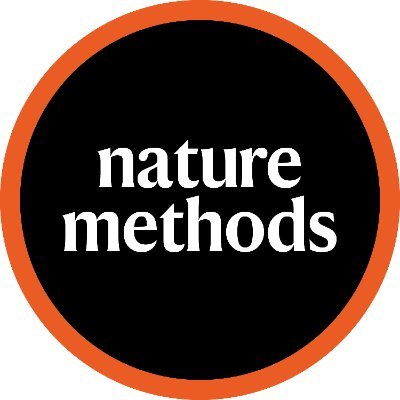
Genomics Proteomics Bioinformatics
@GPBees
Followers
508
Following
465
Media
115
Statuses
896
A prestigious journal for omics and bioinformatics areas. 20 years of excellence since 2003.
Beijing
Joined January 2020
Synteny plot quality control with SyntenyQC. #SyntenyPlots #Grnomivd #Bioinformatics 🧬 🖥️ https://t.co/kHeZfGH8kW
1
14
57
🦣🧬🦣 🤯💥 We are pleased to share our new paper about ancient RNA expression profiles from the Woolly Mammoth, now published in Cell @CellPressNews
https://t.co/9IWBZNEXpQ If you want to know more, read the 🧵 below: #mammoth #RNA #DNA #Pleistocene
11
72
280
We are pleased to announce that our new study explaining the missing heritability of many phenotypes using WGS data from ~347,000 UK Biobank participants has just been published in @Nature. Please check out our manuscript here: https://t.co/PK2DIpshOQ.
nature.com
Nature - WGS data were used from 347,630 individuals with European ancestry in the UK Biobank to obtain high-precision estimates of coding and non-coding rare variant heritability for 34 complex...
9
117
398
u-Segment3D: a universal framework for 2D to 3D cell segmentation that generalizes across cell types and imaging modalities. https://t.co/cH4mypXkze
nature.com
Nature Methods - u-Segment3D is a universal framework that translates and enhances 2D instance segmentations to a 3D consensus instance segmentation without training data. It performs well across...
0
24
89
2/3 Statins are lifesavers for cholesterol, but they carry a known risk of T2D. The new cross-ethnic multi-omics study uncovers the mechanism. The authors found that statin use is consistently associated with the levels of GIP in East Asian and European populations.
1
0
0
1/3 A recent paper entitled "Cross-ethnic Molecular Signatures Underpin the Adverse Impact of Statin Use on Type 2 #Diabetes" is just published, by @zheng_jusheng @FengcheH, among others. https://t.co/ly4DcwrxhK
1
1
2
3/3 Genome-wide association analyses reveal significant correlations between 12 mtDNA variants and 199 nuclear DNA variants, providing valuable insights for genetic research on #mitochondrial-related diseases.
0
0
0
1/3 This study ("Mitochondrial Genome Variants and Nuclear Mitochondrial DNA Segments in 7331 Individuals from #NyuWa and #1KGP") analyzes 7331 samples (including 4,129 Chinese NyuWa samples)... https://t.co/37EDLxFTLy
1
0
2
3/3 These findings open new avenues for understanding and diagnosing repeat expansion disorders.
0
0
0
1/3 New publication in GPB ! The study by Benarroch et al., 2025 is now out! We developed a #CRISPR/Cas9-targeted Oxford #Nanopore sequencing approach to explore repeat expansions in two #neuromuscular diseases: ... https://t.co/Belc0oqeYp
academic.oup.com
Abstract. More than 50 repeat expansion disorders have been identified, with long-read sequencing marking a new milestone in the diagnosis of these disorde
1
0
1
A recent paper entitled "A Co-essentiality Network of Cancer Driver Genes Better Prioritizes Anticancer Drugs" at @GPBees, by Kwanghwan Lee @kwangdol95 et al. https://t.co/JUlUzQIDoJ
0
0
1
3/3: Case studies: Gray platelet syndrome & angina. Explore now: https://t.co/9586w6CvJP
#MultiOmics #Biomarkers #OpenScience #MedTech
0
0
0
2/3: 🔬 PlateletBase: Your Multi-Omic Hub for Platelet Research ✅ Curated 10K+ genomic, 31K transcriptomic, 4K proteomic entries ✅ 6 tools for biomarker discovery & disease mechanisms ✅ Publish-ready figures with one-click generation ✅ All data downloadable for deep analysis
1
0
1
1/3: We have published a study by Luo et al. entitled "PlateletBase: A Comprehensive Knowledgebase for Platelet Research and Disease Insights" @Luo_lab
https://t.co/9QEk6PurVh
academic.oup.com
Abstract. Platelets are vital in many pathophysiological processes, yet there is a lack of a comprehensive resource dedicated specifically to platelet rese
1
1
2
3/3: Using Deconer, Zheng et al. systematically compared the stability, prediction accuracy of 16 deconvolution methods, offering recommendations for users when selecting and developing algorithms. For more information, please visit: https://t.co/Am04ejt0UM.
honchkrow.github.io
A Comprehensive and Systematic Cell Type Deconvolution Evaluator
0
0
2
2/3: Deconer is a tool designed for evaluating reference-based deconvolution methods. It provides multiple simulation and real-world datasets, along with support for various visualization functions.
1
0
2
1/3: 👏👏 We recommend an excellent tool, Deconer, a powerful reference-based deconvolution method for gene expression data. https://t.co/mTQj8EQRHA
#deconvolution #gene_expression
academic.oup.com
Abstract. In recent years, computational methods for quantifying cell-type proportions from transcription data have gained significant attention, particula
1
2
2








